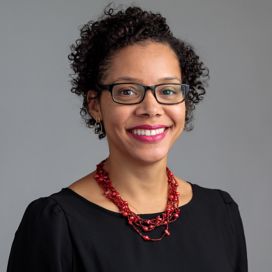Kauffman Scholars Evaluation

Problem
The full impact of a post-secondary scholarship program is unclear.
The Kauffman Scholars Inc. (KSI) post-secondary scholarship program has prepared students in Kansas City to access, persist, and earn their chosen college degree or postsecondary credential. KSI has provided academic and life skills support, college preparation, and postsecondary scholarships to eight cohorts of students from 7th grade on, impacting over 2,500 students. The program aims to enhance the postsecondary success of the scholars and help diversify the career-professional pipeline in the Kansas City metro area. With the program ending in 2023, KSI’s funder, the Ewing Marion Kauffman Foundation, wanted to examine the program’s impact on the scholars and rippling out to their families, their wider connections, and the entire Kansas City community.
Solution
NORC examined KSI’s impact on its scholars and beyond.
NORC used a mixed-methods approach to examine how KSI impacted the scholars themselves as well as those in their lives and the Kansas City community. We also determined how well the program achieved its goals and identified which factors impacted its success. The evaluation involved:
- Conducting surveys of the scholars, their parents and family members, and KSI community partners
- Analyzing existing program data
- Interviewing current and past KSI staff
- Conducting storytelling sessions with selected scholars
- Completing a cost-utility analysis for the program
NORC is committed to using a culturally responsive and equitable evaluation (CREE) to help ensure a rigorous research design and analysis. CREE is a collaborative, person-centered approach infused into evaluation designs and methods. CREE allows for core Indigenous values—equity, balance, discovery, and reflection—to ground the project’s design and implementation.
Result
KSI’s investment benefited students as well as their community.
Preliminary project results show:
- Among scholars who completed the program, 90 percent attended college/postsecondary training and 54 percent earned a college degree/postsecondary credential (versus 45 percent and 10 percent for non-completing scholars).
- The overwhelming majority of scholars believed that KSI helped them get into college or a postsecondary program (78 percent), helped prepare them for it (76 percent), and helped them be successful in their college/postsecondary program (72 percent).
Related Tags
Project Leads
-
Wesley Williams II
Senior Research DirectorStorytelling Lead -
Jaunelle Pratt-Williams
Principal Research ScientistAnalysis Lead








